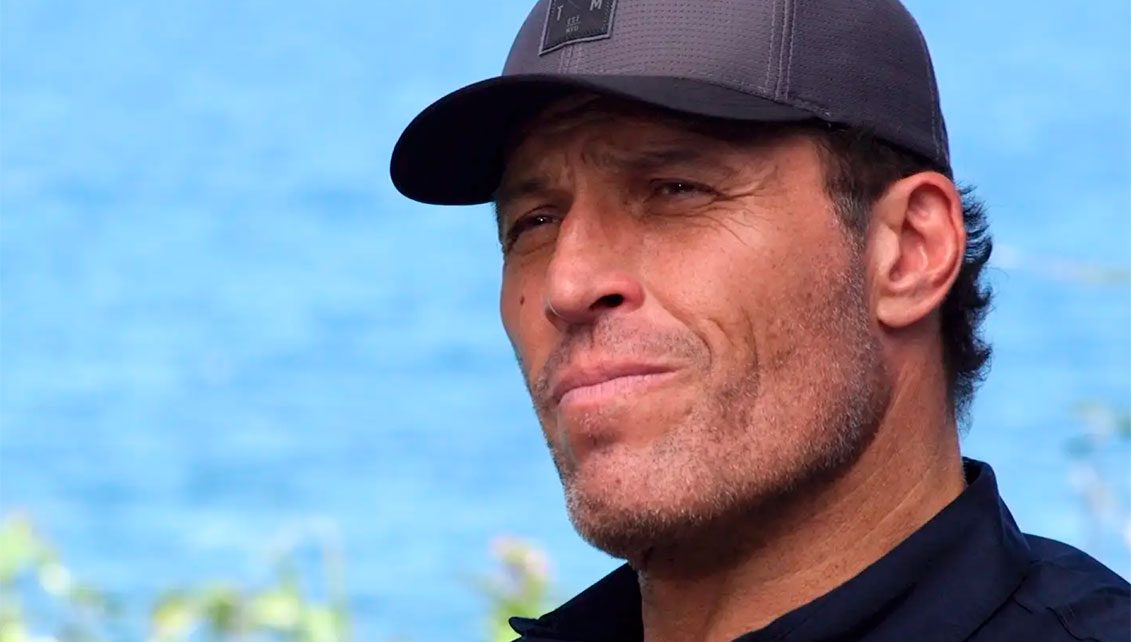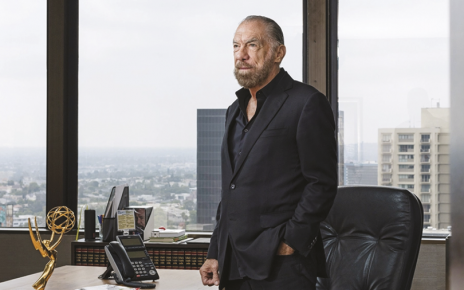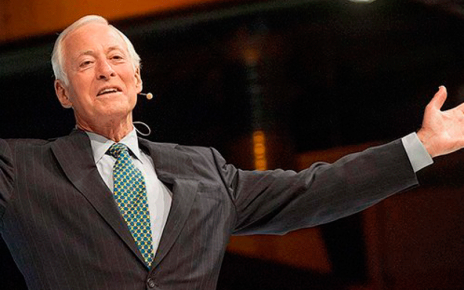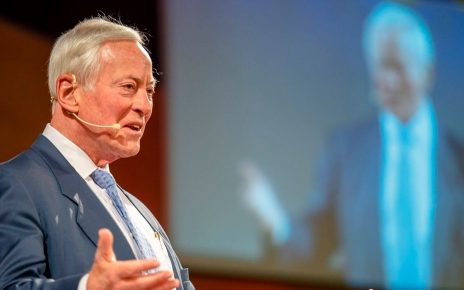by Richard Feloni
Tony Robbins started out as a broke janitor, then he saved a week’s worth of pay, and the way he spent it changed his life.
Robbins grew up in North Hollywood, the oldest of three siblings. Their mother was addicted to drugs and alcohol and was physically abusive, Robbins told us, “and I had to protect my brother and sister, so I became a practical psychologist just out of necessity.”
He said that he attended schools that may not have catered to wealthy families, but where he was still clearly one of the students from “the wrong side of the tracks.” He said that by the time he was a junior in high school, he became fixated on the question of what separated the haves from the have-nots, the popular kids from the outcasts, and so on.
At 17, Robbins worked as a janitor after school and helped people move on the weekends to make money to help out his family. He told us that on one of these moves, he was taking a break when he asked the landlord on site, who was a family friend: “My dad said you used to be such a loser, and how come you’re so successful now?”
“Only a kid can say that stuff,” Robbins said with a laugh, “and the guy looks at me and goes, ‘Your dad said what?”
The man told him that he started to turn his life around after going to a Jim Rohn seminar, which he described as “a man takes everything he’s learned in 20, 30 years of his life, and he pours it into like four hours.”
Robbins asked if the landlord could get him into an upcoming seminar for free, to which the landlord said he could but wouldn’t, since Robbins wouldn’t value it. Robbins was making $40 a week, and a ticket to the seminar was $35.
Rohn was a marketer who was nudged into pursuing his penchant for public speaking full time in his 30s. Inspired by his former boss, the entrepreneur John Earl Shoaff, Rohn developed a leadership philosophy and a speaking series around it.
The particularly American brand of self-improvement took off during and after the Great Depression with the writers Napoleon Hill (“Think and Grow Rich”) and Dale Carnegie (“How to Win Friends & Influence People”), and Rohn carried on the tradition, with maxims like “True happiness is not contained in what you get; happiness is gained by what you become.”
When Robbins met Rohn, he had been giving these personal development speeches to executives and employees at Standard Oil. Robbins found Rohn’s approach captivating, and it captured what he was trying to get from life at that point in his life.
Robbins approached Rohn to work for him and son became his protégé. Robbins developed a high energy, more personalized version of what Rohn did that was also more influenced by theories from behavioral psychology he studied. Robbins honed his approach on the road through hundreds of seminars across North America, and by the time he was 26, he was a millionaire with a bestselling book.
In a video tribute to Rohn after Rohn’s death in 2009, Robbins said it all began with his mentor. “He gave me a way of looking at life that allowed me to not ask life to be easier, but to ask that I be better. He got me to realice that the secret to life was to work harder on myself tan my job or anything else, because then I’d have something to give people. And he really shaped me.”





